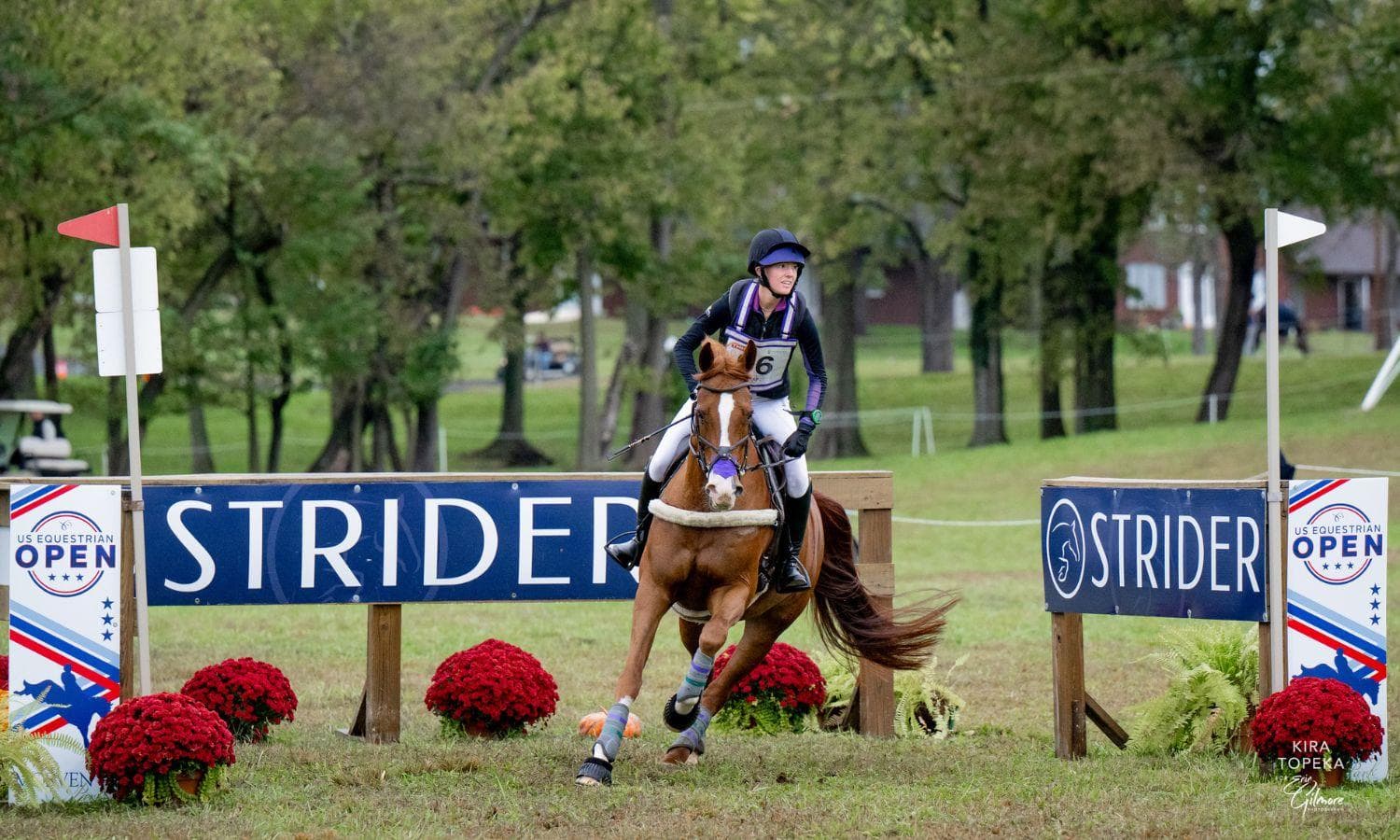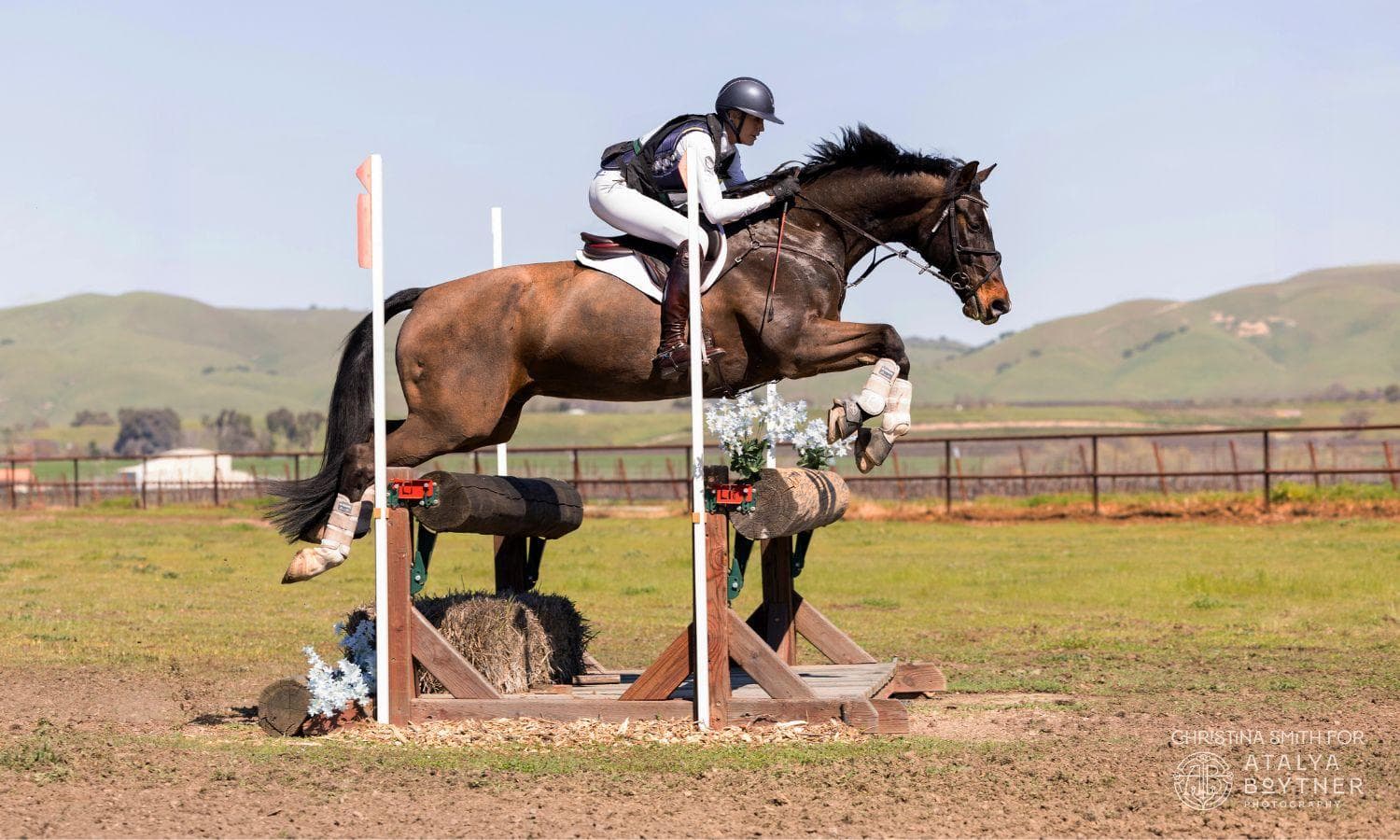The History of U.S. Eventing Medals
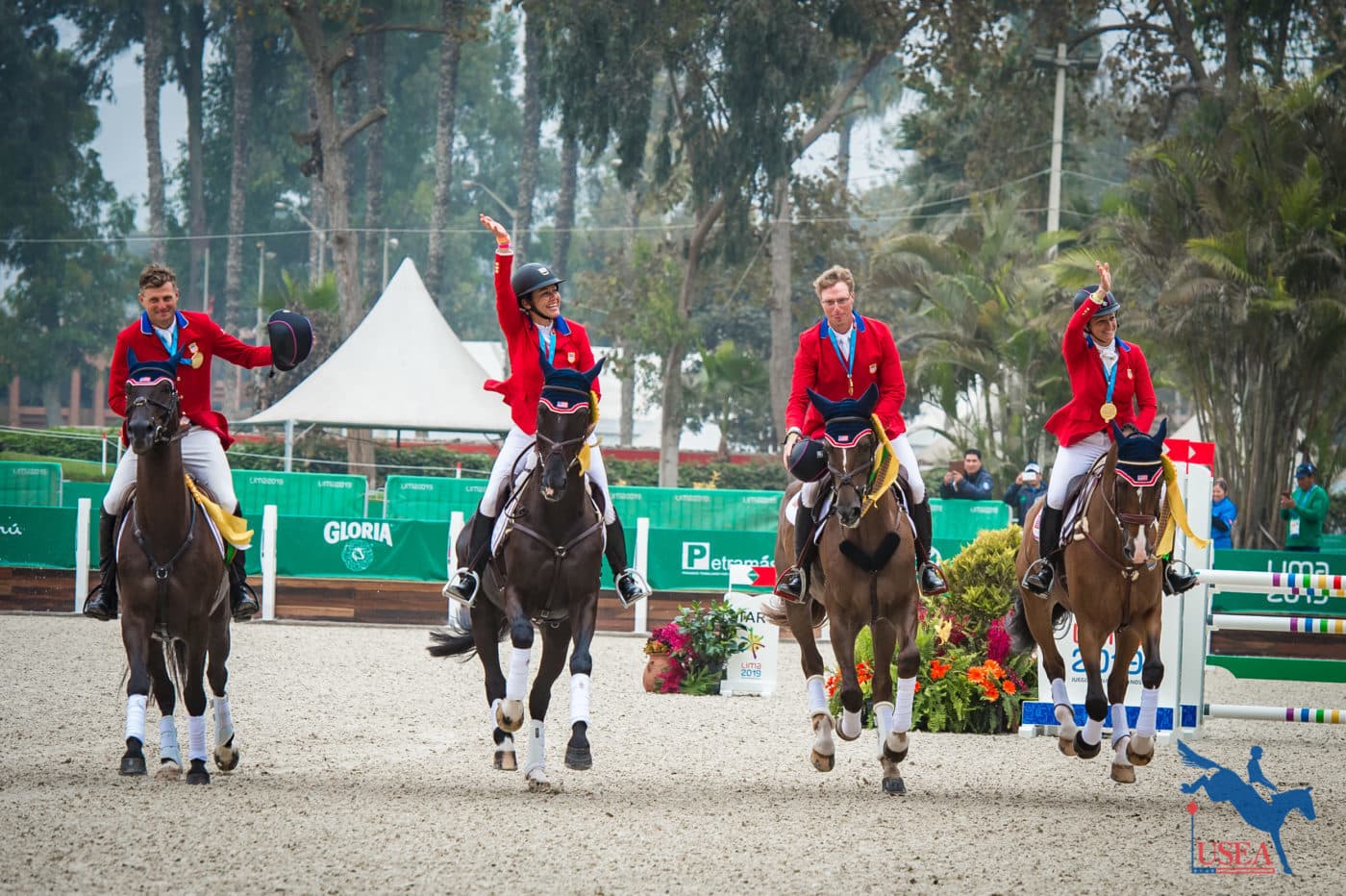
In 1912, three-day eventing was introduced as an Olympic sport, and since then U.S. eventing has earned a total of 77 different medals at the Olympics, World Equestrian Games, and Pan American Games. Out of the 77 medals, 31 are gold, 25 are silver, and 21 are bronze.
Take a walk down memory lane and learn about the many victories U.S. Eventing has had in the last 108 years.
1912 Stockholm Olympic Games
The 1912 Stockholm Olympic Games was the first time equestrian sport was introduced into the modern Olympic Games. The bronze medal at Stockholm marked the first medal earned in U.S. eventing history. The format of the 1912 three-day event included five phases that were held over four days: day one was roads and tracks and cross-country, day two was steeplechase, day three was show jumping, and day four ended with a 10-minute dressage test.
- Team Bronze - Lt. Ephraim Graham on Connie, Capt. Guy Henry on Chiswell, Lt. Benjamin Lear, Jr. on Poppy, and Lt. John C. Montgomery on Deceive
1924 Paris Olympic Games
- Individual Bronze - Major Sloan Doak on Pathfinder
1932 Los Angeles Olympic Games,
This was the first team gold medal won in U.S. eventing history.
- Team Gold - Capt. Edward Argo on Honolulu Tomboy, Maj. Harry Chamberlain on Pleasant Smiles, and Lt. Earl Thomson on Jenny Camp
- Individual Silver - Lt. Earl Thomson on Jenny Camp
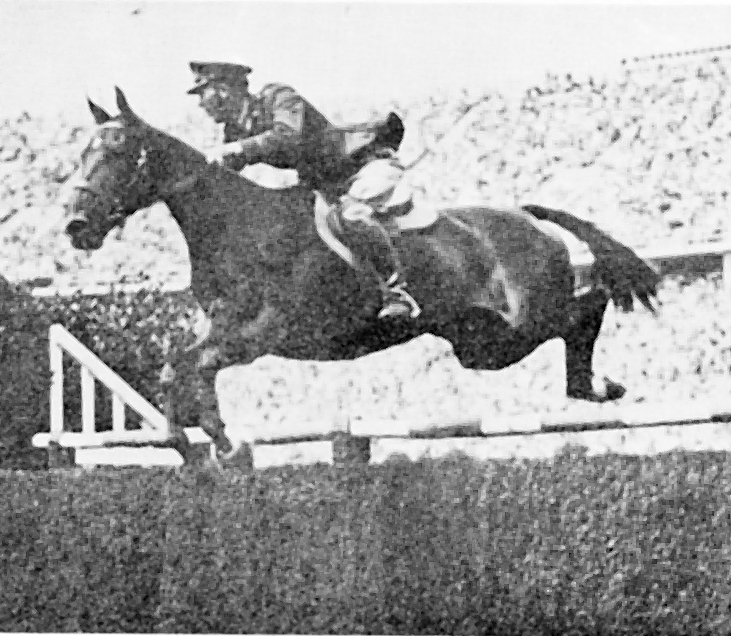
1936 Berlin Olympic Games
Lt. Earl Thomson and Jenny Camp won two consecutive individual Olympic silver medals. Jenny Camp is one of only four horses who have won individual medals at consecutive Olympic Games, and the only U.S. horse to do so. The other three horses are: Marcoix ridden by Lt. Charles F. Pahud de Mortanges for the Netherlands, Charisma ridden by Mark Todd for New Zealand, and La Biosthetique Sam FBW ridden by Michael Jung for Germany.
- Individual Silver – Lt. Earl Thomson on Jenny Camp
1948 London Olympic Games
- Team Gold - Col. Charles Anderson on Reno Palisades, Lt. Col. Frank Henry on Swing Low, and Col. Earl Thomson on Reno Rhythm
- Individual Silver - Lt. Col. Frank Henry on Swing Low
1952 Helsinki Olympic Games
The 1952 Helsinki Olympic Games were the first that allowed civilian men to compete in three-day eventing.
- Team Bronze - Charles Hough on Cassavellanus, Walter Staley, Jr. on Craigswood, and John E.B. Wofford on Benny Grimes
1955 Mexico City Pan American Games
- Individual Gold – Walter Staley Jr. on Mud Dauber
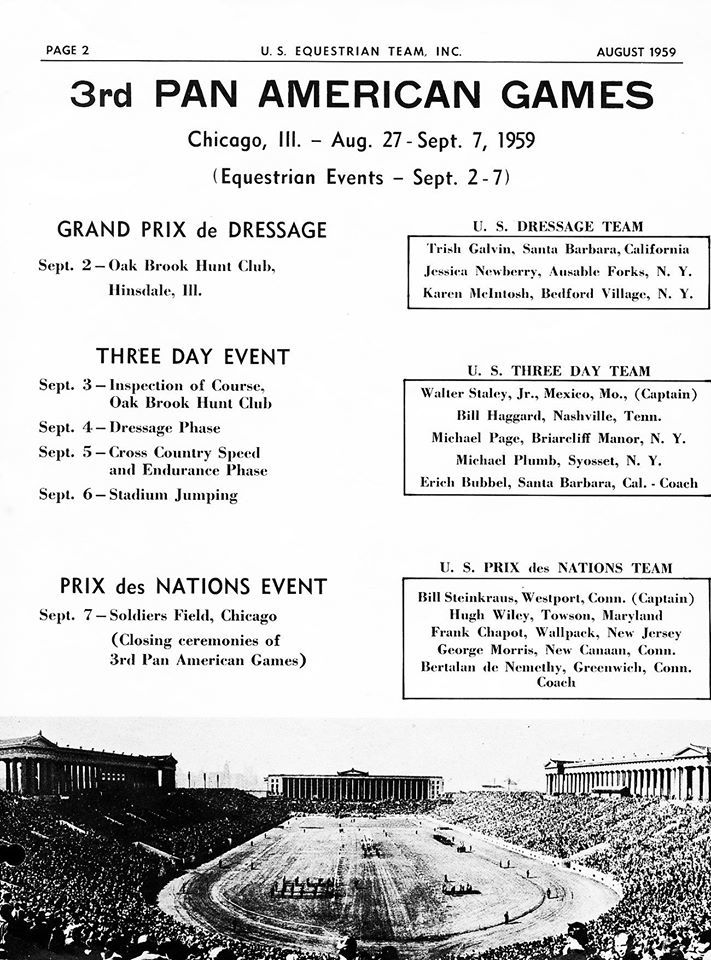
1959 Chicago Pan American Games
The United States Eventing Association (USEA), formerly known as the United States Combined Training Association (USCTA), was formed during the 1959 Pan American Games in Chicago, Illinois. The meeting among founding members including Alexander Mackay-Smith and Captain John ‘Jack’ Fritz took place alongside the Pan American Games at Patrick Butler’s home in Oak Brook, Illinois.
- Team Silver - William Haggard on Bold Minstrel, Michael Page on Grasshopper, J. Michael Plumb on Markham, and Walter Staley, Jr. on Sebastian
- Individual Gold - Michael Page and Grasshopper
- Individual Silver - J. Michael Plumb on Markham
1963 Pan American Games in Sao Paulo
Michael Page and Grasshopper won the individual gold medal at two consecutive Pan American Games (1959 and 1963).
- Team Gold - Kevin Freeman on Reno Pal, William Haggard on Bold Minstrel, Michael Page on Grasshopper, and J. Michael Plumb on Markham.
- Individual Gold - Michael Page and Grasshopper
- Individual Silver - Kevin Freeman on Reno Pal
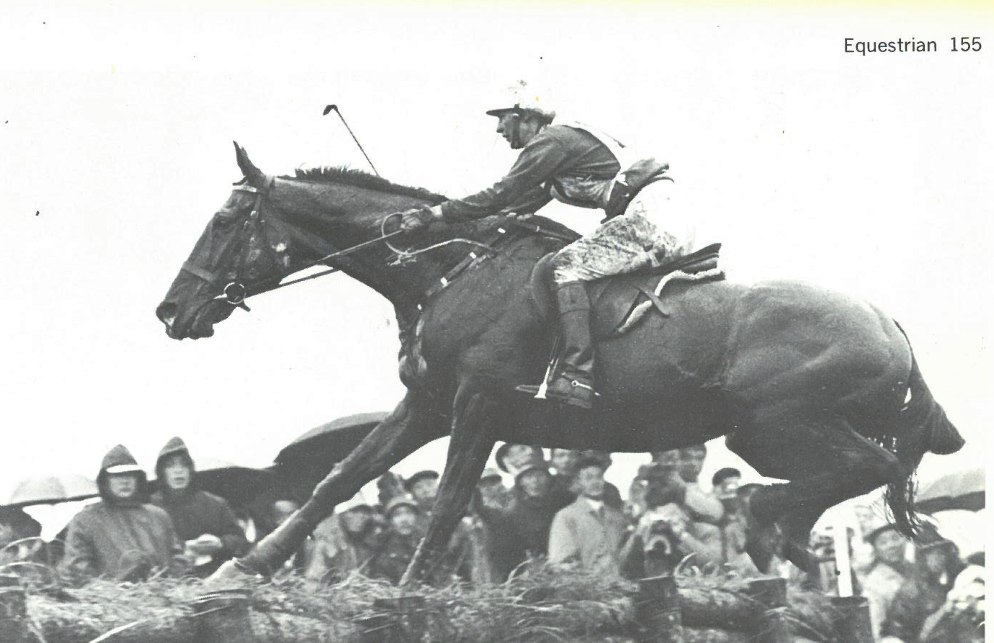
1964 Tokyo Olympic Games
The 1964 Tokyo Olympic Games marked a milestone for three-day eventing, as it was the first Olympic three-day event in which women were allowed to compete. Dressage was the first equestrian sport to open to women at Helsinki in 1952, and show jumping allowed women at Stockholm in 1956. U.S. rider Lana DuPont on Mr. Wister was the first woman to ride in an Olympic eventing competition.
- Team Silver - Lana DuPont on Mr. Wister, Kevin Freeman on Gallopade, Michael Page on Grasshopper, and J. Michael Plumb on Bold Minstrel
1967 Winnipeg Pan American Games
- Team Gold - Rick Eckhardt on The Stranger, Michael Page on Foster, J. Michael Plumb on Plain Sailing, James Wofford on Kilkenny
- Individual Gold - J. Michael Plumb on Plain Sailing
- Individual Bronze - Michael Page on Foster

1968 Mexico City Olympic Games
- Team Silver - Kevin Freeman on Chalan, Michael Page on Foster, J. Michael Plumb on Plain Sailing, James Wofford on Kilkenny
- Individual Bronze - Michael Page on Foster
1970 Punchestown World Championships
- Individual Bronze – James Wofford on Kilkenny
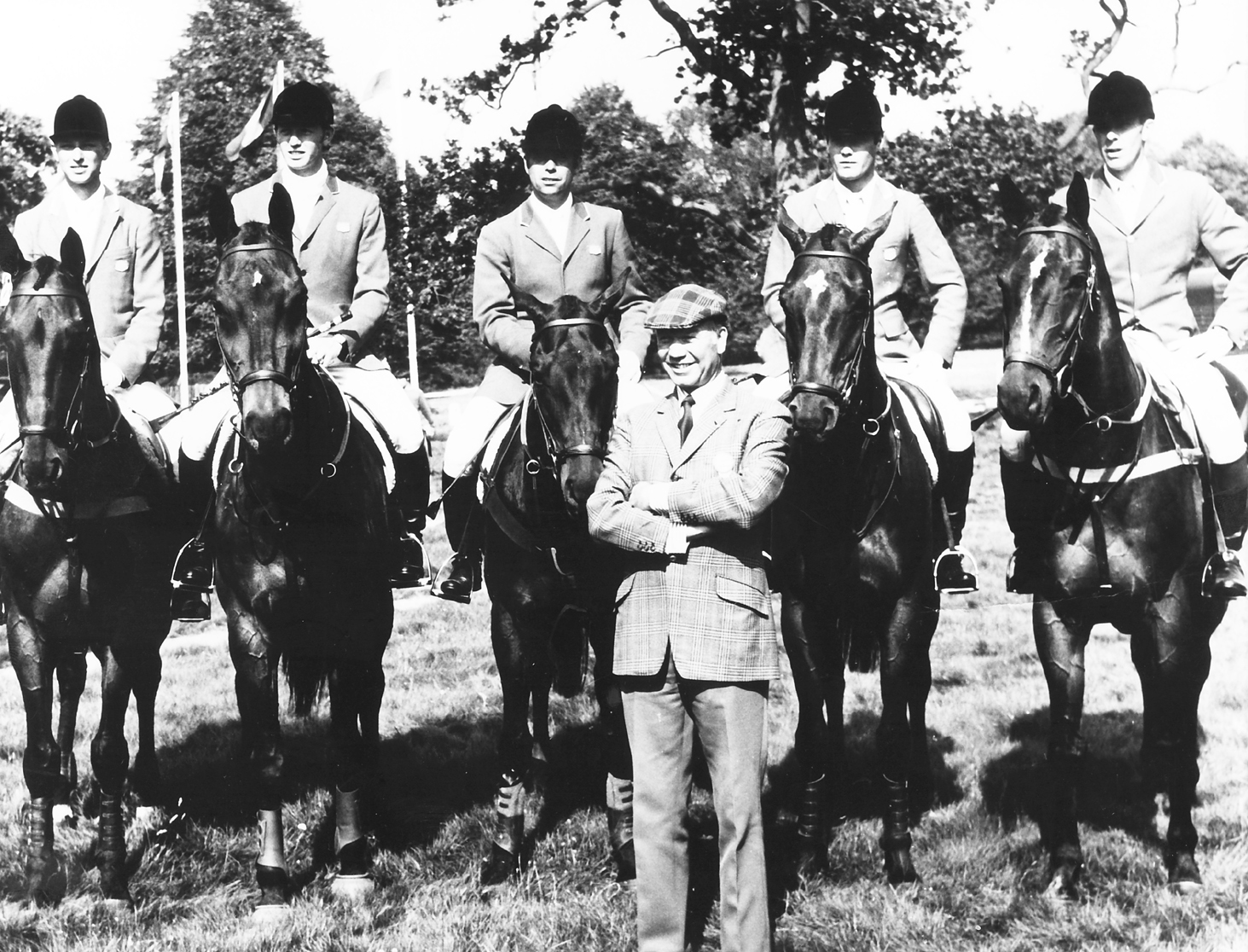
1972 Munich Olympic Games
Considered to be the ‘Golden Age of U.S. Eventing’, Jack Le Goff coached the U.S. Eventing team from 1970 to 1984 and earned 18 medals in international competition. The 1972 Munich Olympic Games was Jack Le Goff’s first U.S. team.
- Team Silver – Bruce Davidson on Plain Sailing, Kevin Freeman on Good Mixture, J. Michael Plumb on Free and Easy, James Wofford on Kilkenny
1974 Burghley World Championships
The 1974 Burghley World Championships was the first year a U.S. event rider won the World Championships – Bruce Davidson riding Irish Cap. Another standout athlete from this World Championships was Don Sachey’s horse, Plain Sailing, a veteran team horse who won five medals with three different riders. He won team gold and individual gold at the 1967 Pan American Games and team silver in the 1968 Olympic Games with J. Michael Plumb, team silver at the 1972 Olympic Games with Bruce Davidson, and team gold at the 1974 World Championships at Burghley with Don Sachey.
- Team Gold - Bruce Davidson on Irish Cap, Edward Emerson on Victor Dakin, J. Michael Plumb on Good Mixture, Don Sachey on Plain Sailing
- Individual Gold – Bruce Davidson on Irish Cap
- Individual Silver – J.Michael Plumb on Good Mixture
1975 Mexico City Pan American Games
- Team Gold - Tad Coffin on Bally Cor, Bruce Davidson on Golden Griffin, Beth Perkins on Furtive, and Mary Anne Tauskey on Marcus Aurelius
- Individual Gold – Tad Coffin on Bally Cor
- Individual Silver – Bruce Davidson on Golden Griffin
1976 Montreal Olympic Games
The 1976 Montreal Olympic Games was the first Olympic Games where a U.S. event rider won the individual gold medal. There have only been two in U.S. eventing history – Tad Coffin on Bally Cor (1976) and David O’Connor on Custom Made (2000).
- Team Gold - Tad Coffin on Bally Cor, Bruce Davidson on Irish Cap, J. Michael Plumb on Better and Better, and Mary Anne Tauskey on Marcus Aurelius
- Individual Gold – Tad Coffin on Bally Cor
- Individual Silver – J. Michael Plumb on Better and Better
1978 Lexington World Championships
Bruce Davidson set a new record at the 1978 World Championships as he's the only rider to ever win back-to-back World Championship titles.
- Team Bronze - Tad Coffin on Bally Cor, Bruce Davidson on Might Tango, J. Michael Plumb on Laurenson, James Wofford on Carawich
- Individual Gold – Bruce Davidson on Might Tango

1980 Fontainebleau Alternative Olympic Games
Riding the 15.1 hand Pinto mare, Poltroon, Torrance Watkins became the first woman to win an individual Olympic medal in eventing.
- Individual Silver – James Wofford on Carawich
- Individual Bronze - Torrance Watkins on Poltroon
1982 Luhmuhlen World Championships
- Team Bronze - Nancy Bliss on Cobblestone, Torrance Fleischmann on Southern Comfort, J. Michael Plumb on Blue Stone, Kim Walnes on The Gray Goose
- Individual Bronze – Kim Walnes on The Gray Goose
1984 Los Angeles Olympic Games
At the 1984 Los Angeles Olympic Games, there were 48 horses in the eventing competition. Out of the 48 horses, the most common age for horses was 11 years old with 16 horses competing at the age of 11. There were four mares, two stallions, and the rest were geldings. This was also Jack Le Goff’s last time as chef d’equipe for the U.S.
- Team Gold - Bruce Davidson on J.J. Babu, Torrance Fleischmann on Finvarra, J. Michael Plumb on Blue Stone, and Karen Stives on Ben Arthur
- Individual Silver – Karen Stives on Ben Arthur
1987 Indianapolis Pan American Games
- Team Gold - Mike Huber on Quartermaster, Nancy Lindroth on Landino, Emily MacGowan on Jet Set, Patrick “Packy” McGaughan on Tanzer
- Individual Gold - Mike Huber on Quartermaster
- Individual Silver - Emily MacGowan on Jet Set
1990 Stockholm World Equestrian Games
- Individual Bronze – Bruce Davidson on Pirate Lion
1994 The Hague World Equestrian Games
- Individual Silver - Dorothy (Trapp) Crowell on Molokai
1995 Buenos Aires Pan American Games
- Team Silver - Bruce Davidson on Heyday, Mara DuPuy on Hopper, Missy Ransenhousen on Pacific Lion, Denise Rath on Galliard
- Individual Gold – Bruce Davidson on Heyday
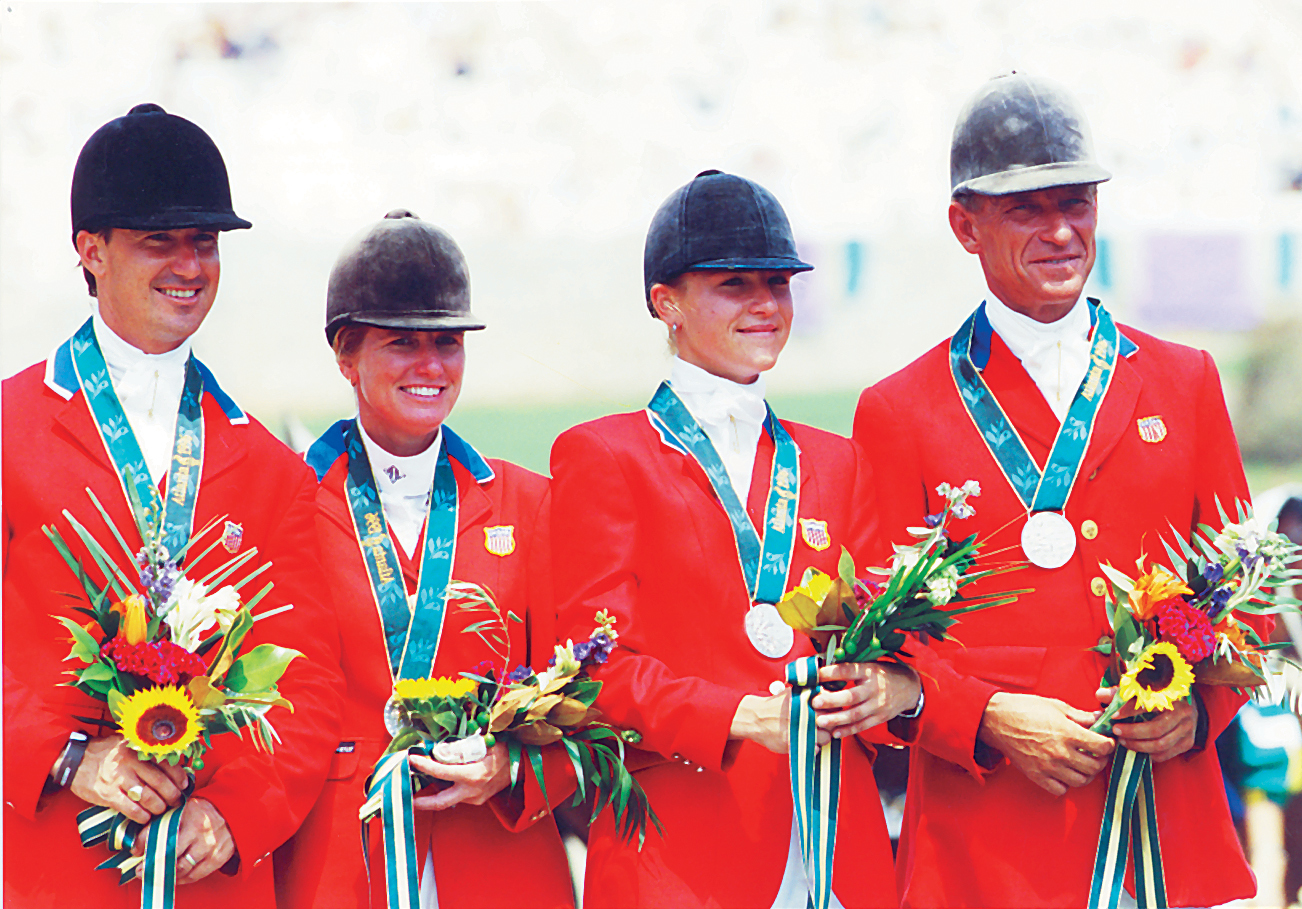
1996 Atlanta Olympic Games
After Jack Le Goff retired from coaching, he served as a FEI judge at events around the world including the 1996 Atlanta Olympic Games.
- Team Silver - Bruce Davidson on Heyday, Jill Henneberg on Nirvana, David O’Connor on Giltedge, Karen O’Connor on Biko
- Individual Bronze - Kerry Millikin on Out and About
1998 Rome World Equestrian Games
- Team Bronze - Bruce Davidson on Heyday, Kerry Millikin on Out and About, David O’Connor on Giltedge, and Karen O’Connor on Prince Panache
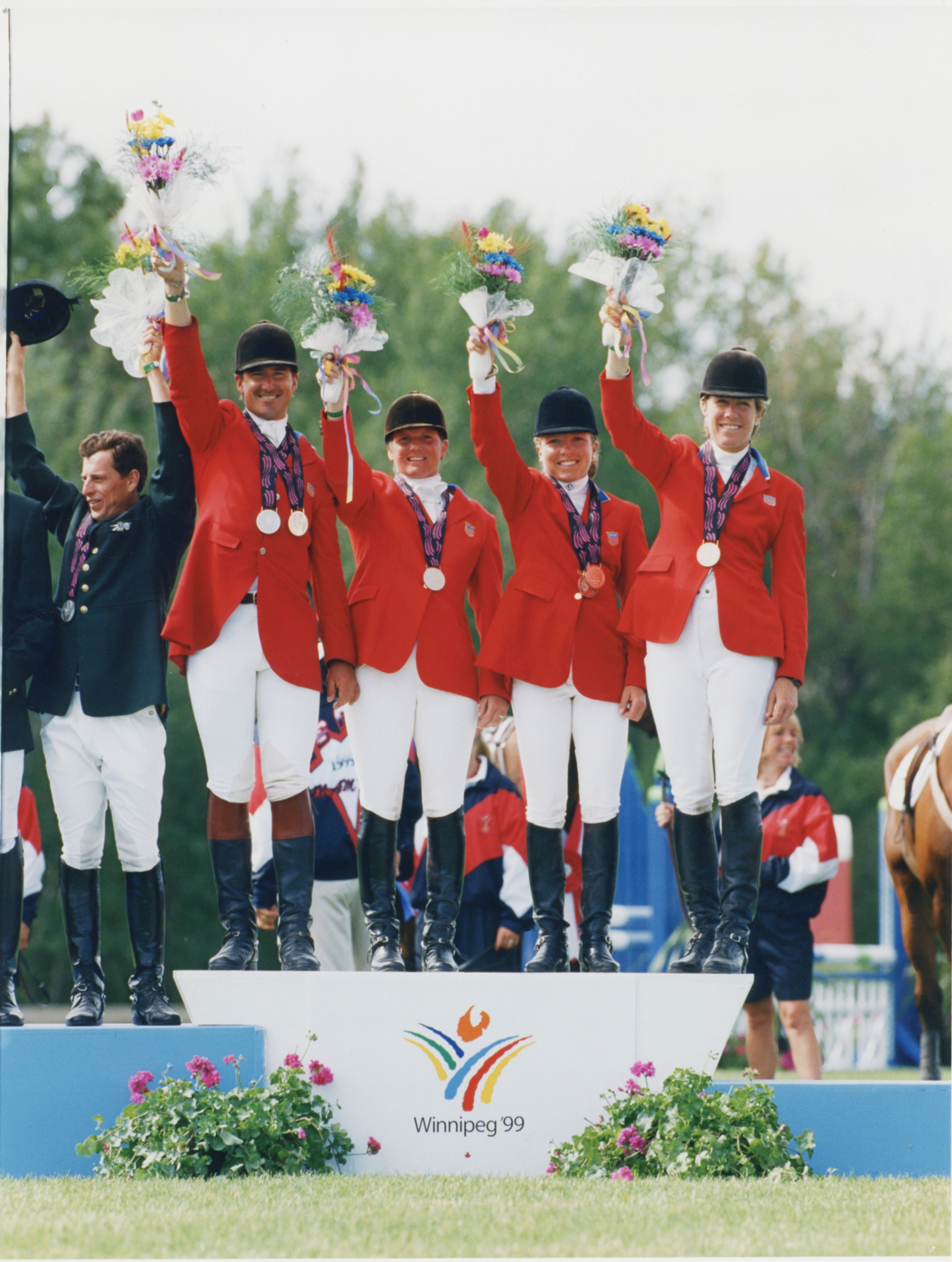
1999 Winnipeg Pan American Games
- Team Gold - Lauren Hart on Wexford, Abigail Lufkin on Jacob Two Two, Kerry Millikin on Landlady, and David O’Connor on Giltedge
- Individual Silver - David O’Connor on Giltedge
- Individual Bronze – Abigail Lufkin on Jacob Two Two
2000 Sydney Olympic Games
At the 2000 Olympic Games, David O’Connor became the second and last U.S. event rider to win an individual gold medal.
- Team Bronze - Nina Fout on 3 Magic Beans, David O’Connor on Giltedge, Karen O’Connor on Prince Panache, Linden Wiesman on Anderoo
- Individual Gold – David O’Connor on Custom Made
2002 Jerez World Equestrian Games
- Team Gold - David O’Connor on Giltedge, Kim Severson on Winsome Adante, Amy Tryon on Poggio II, and John Williams on Carrick
2003 Pan American Games
The eventing portion of the 2003 Pan American Games, held in Santo Domingo, Dominican Republic, was in fact held at the Fair Hill CCI3* due to logistical issues with the venue, Palmarejo Equestrian Center.
- Team Gold - Stephen Bradley on Brandeburg's Joshua, Jan Thompson on Shared Dreams, Will Faudree on Antigua, Robert Costello on Dalliance
- Individual Gold - Darren Chiacchia on Windfall II
- Individual Silver - Karen O'Connor on Jokers Wild
- Individual Bronze - Jan Thompson on Shared Dreams
2004 Athens Olympic Games
The new format of three-day eventing, with the removal of roads and tracks and steeplechase, was first introduced at the 2004 Olympic Games.
- Team Bronze - Darren Chiacchia on Windfall II, Julie Richards on Jacob Two Two, Kim Severson on Winsome Adante, Amy Tryon on Poggio II, John Williams on Carrick
- Individual Silver – Kim Severson on Winsome Adante
2006 Aachen World Equestrian Games
- Individual Bronze – Amy Tryon on Poggio II
2007 Rio de Janeiro Pan American Games
The 2007 Pan American Games was the first time in history that U.S. eventing brought home four different medals in an international competition - the maximum amount possible.
- Team Gold - Stephen Bradley on From, Phillip Dutton on Truluck, Gina Miles on McKinlaigh, Karen O’Connor on Theodore O’Connor
- Individual Gold – Karen O’Connor and Theodore O’Connor
- Individual Silver – Phillip Dutton on Truluck
- Individual Bronze – Gina Miles on McKinlaigh
2008 Hong Kong Olympic Games
- Individual Silver – Gina Miles on McKinlaigh
2011 Guadalajara Pan American Games
- Team Gold - Hannah Sue Burnett on Harbour Pilot, Buck Davidson on Absolute Liberty, Lynn Symansky on Donner, Michael Pollard on Schoensgreen Hanni
- Individual Silver – Hannah Sue Burnett on Harbour Pilot
- Individual Bronze – Buck Davidson on Absolute Liberty
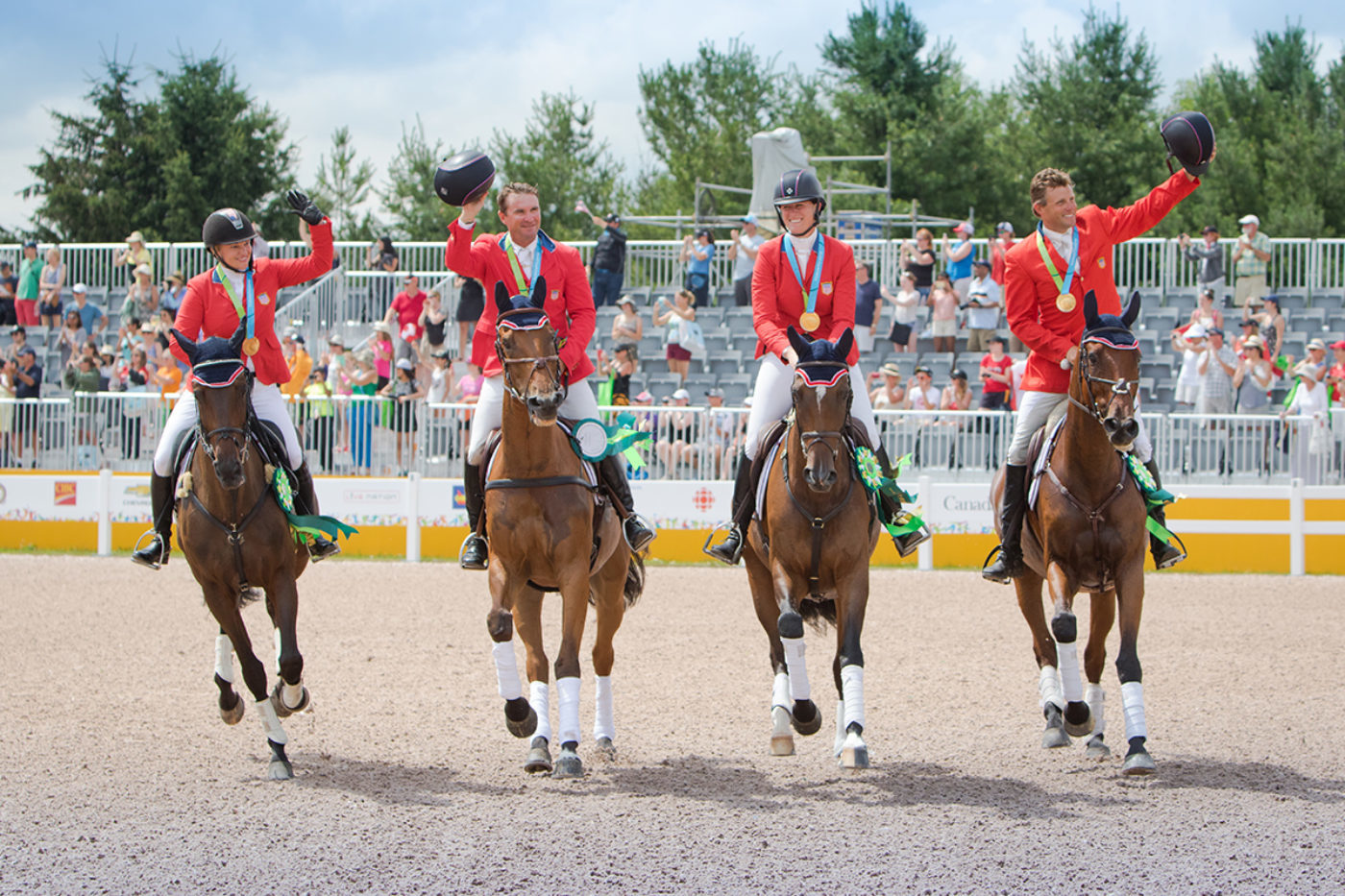
2015 Toronto Pan American Games
- Team Gold - Marilyn Little on RF Scandalous, Boyd Martin on Pancho Villa, Phillip Dutton on Fernhill Fugitive, Lauren Kieffer on Meadowbrook’s Scarlett
- Individual Gold – Marilyn Little on RF Scandalous
2016 Rio de Janeiro Olympic Games
Phillip Dutton has earned six medals for the U.S. and Australia, but the 2016 Rio Olympic Games was the first time he earned an individual Olympic medal.
- Individual Bronze – Phillip Dutton on Mighty Nice
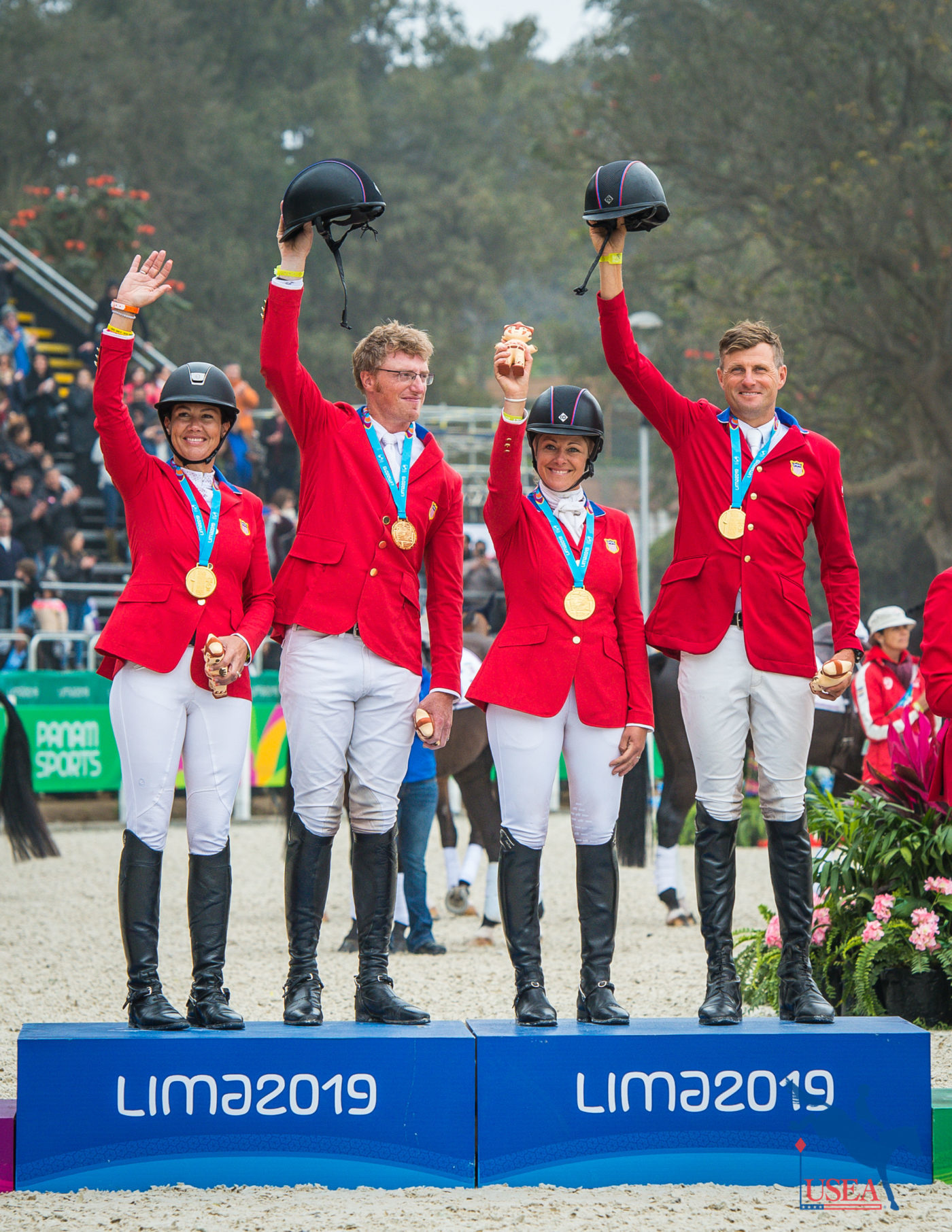
2019 Lima Pan American Games
- Team Gold - Boyd Martin on Tsetserleg, Lynn Symansky on RF Cool Play, Tamie Smith on Mai Baum, Doug Payne on Starr Witness
- Individual Gold – Boyd Martin on Tsetserleg
- Individual Silver – Lynn Symansky on RF Cool Play
The full medal history of the United States Equestrian Team can be found here.

